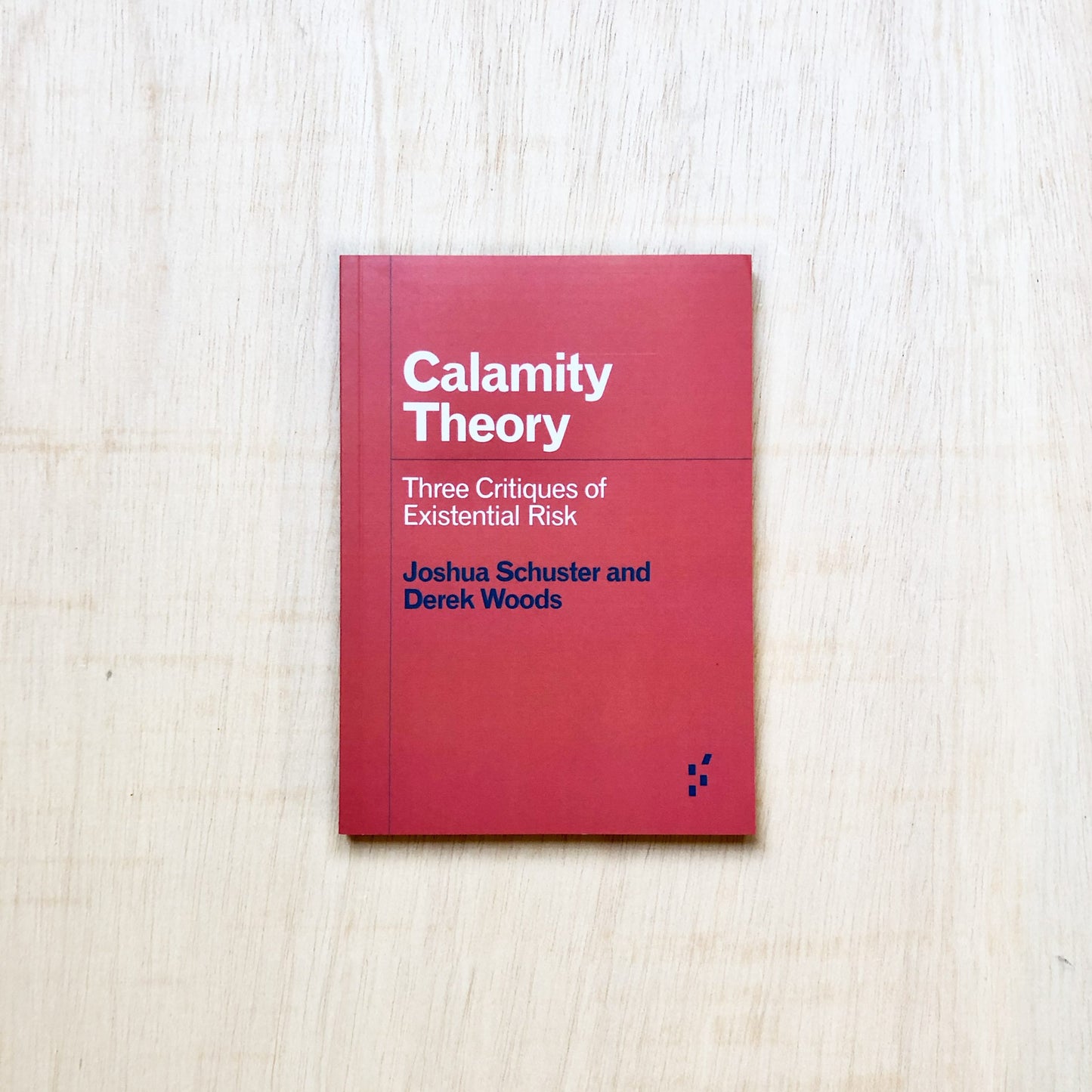Calamity Theory - Three Critiques of Existential Risk
Calamity Theory - Three Critiques of Existential Risk
Joshua Schuster and Derek Woods
University of Minnesota Press
2021
Softcover
978151791291818 x 13 x 1
126 pages
Normaler Preis
12,00 €
Normaler Preis
Verkaufspreis
12,00 €
Grundpreis
pro
inkl. MwSt.
Verfügbarkeit für Abholungen konnte nicht geladen werden
What are the implications of how we talk about apocalypse?
“Existential risk” studies any real or hypothetical human extinction event in the near or distant future. Calamity Theory is the first book to examine the rise of this thinking and its failures to acknowledge the ways some communities and lifeways are more at risk than others and what it implies about human extinction.
A new philosophical field has emerged. “Existential risk” studies any real or hypothetical human extinction event in the near or distant future. This movement examines catastrophes ranging from runaway global warming to nuclear warfare to malevolent artificial intelligence, deploying a curious mix of utilitarian ethics, statistical risk analysis, and, controversially, a transhuman advocacy that would aim to supersede almost all extinction scenarios. The proponents of existential risk thinking, led by Oxford philosopher Nick Bostrom, have seen their work gain immense popularity, attracting endorsement from Bill Gates and Elon Musk, millions of dollars, and millions of views.
Calamity Theory is the first book to examine the rise of this thinking and its failures to acknowledge the ways some communities and lifeways are more at risk than others and what it implies about human extinction.
Contents
Introduction: What Is Existential Risk?
1. Endgame Philosophy
2. Probability and Speculation
3. The Existential Roots of Existential Risk
Conclusion: Opening the “Letter from Utopia”
Acknowledgments
Joshua Schuster is associate professor of English and core faculty member of The Centre for the Study of Theory and Criticism at Western University. Derek Woods is assistant professor of English at the University of British Columbia.


